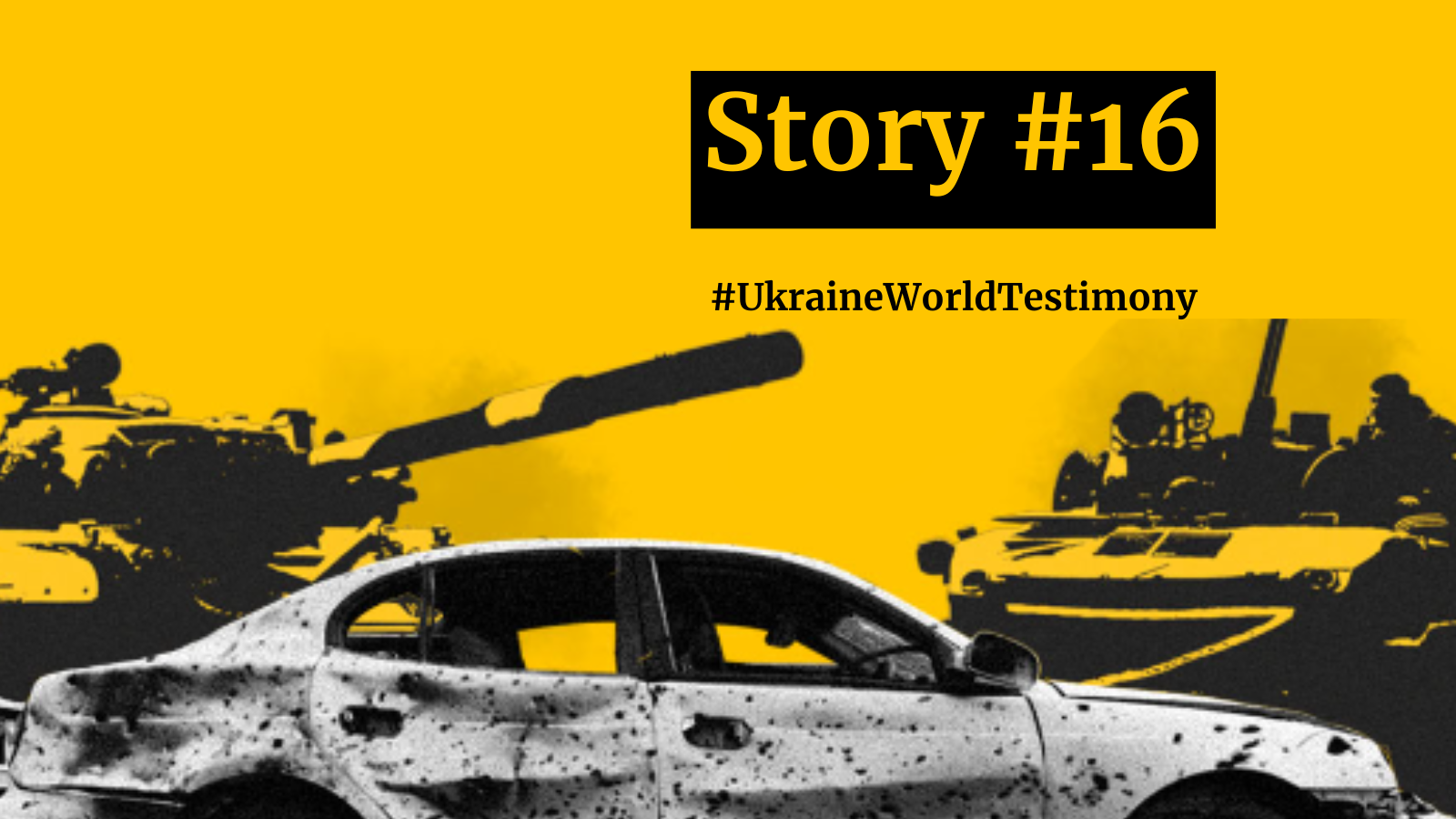
On March 1, the lights were shut off, and together with the lights, the Internet and all communication disappeared (the cell towers were bombed).
There was no longer any tap water. People in Mariupol were cut off from the outside world. Only an old radio, which did not catch radio waves properly, helped them to keep contact with the outside world. But they still had gas, which they could use to cook and warm the apartment a little and dry their hair after washing.
On the evening of March 6, Mariupol ran out of gas. They couldn’t even boil water in the kettle. At that moment, Oksana felt hopeless. Disconnected from the last source of civilization.
On March 9, at 5 am, shelling intensified ceaselessly. By noon it was a little quieter, and Oksana’s children and friends went to get water from the well. The shelling started again. Someone in line lost their leg, and someone else was killed.
They rushed to flee without waiting for their turn. On the way home there was still shelling. Her children were sitting in the garbage compartment, a shard of glass scratched Oksana’s doughter’s upper eyelid, but, thank God, it was nothing too serious.
On March 13, at midnight, the shelling began and continued all night long. It was very cold in their apartment. Their breath turned to steam in the cold air.
Oksana was sleeping in two pairs of warm woollen socks, two sweaters and a mink coat. Mink was not a luxury, but just a means of warming then.
The shelling in the morning was even more intense than it was at night. Planes were flying overhead, cluster bombs were being dropped, and hail was heard from time to time. But for some reason, all Oksana could think about was eating.
It was probably a protective reaction of her body. She boiled water on the street, cooked porridge and baked flatbreads. When the whistling of shells and the cannonade of hail were heard, everyone ran to the entrance and was hiding behind the load-bearing wall. As soon as everything calmed down, they returned to the fire.
On March 14, the destroyed, broken houses were full of corpses. But no one takes them out or gets them because of the constant shelling. What would happen in the city with the arrival of heat? It's scary to imagine the stench.
March 15. All night and all morning they bombed mercilessly, the house trembled, and the windows shattered. At 9:00, Oksana’s son-in-law came running and said that that day was their chance to leave. The Red Cross was leaving the city - everyone could join at their own risk.
The convoy of Red Cross vehicles left, followed by everyone who was lucky enough to learn about the "corridor". Having experienced this unbelievable horror, they were able to escape to Zaporizhya.
